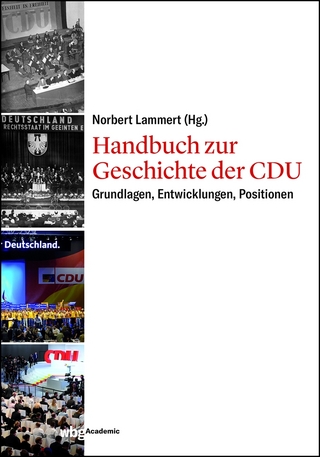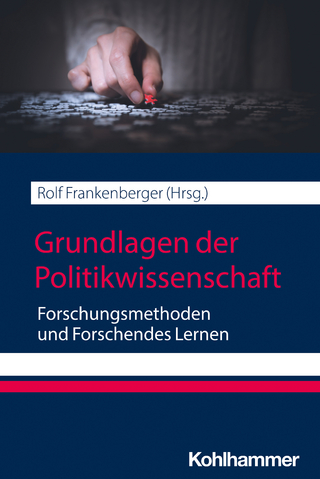
Legislating the War on Terror
An Agenda for Reform
Seiten
2017
Brookings Institution (Verlag)
978-0-8157-3360-7 (ISBN)
Brookings Institution (Verlag)
978-0-8157-3360-7 (ISBN)
- Titel z.Zt. nicht lieferbar
- Versandkostenfrei innerhalb Deutschlands
- Auch auf Rechnung
- Verfügbarkeit in der Filiale vor Ort prüfen
- Artikel merken
The events of September 11 and subsequent American actions irrevocably changed the political, military, and legal landscapes of US national security. Predictably, many of the changes were controversial, and abuses were revealed. The US needs a legal framework that reflects these new realities. This title presents an agenda for reforming the statutory law governing this new battle.
The events of September 11 and subsequent American actions irrevocably changed the political, military, and legal landscapes of U.S. national security. Predictably, many of the changes were controversial, and abuses were revealed. The United States needs a legal framework that reflects these new realities. Legislating the War on Terror presents an agenda for reforming the statutory law governing this new battle, balancing the need for security, the rule of law, and the constitutional rights that protect American freedom.
The authors span a considerable swath of the political spectrum, but they all believe that Congress has a significant role to play in shaping the contours of America's confrontation with terrorism. Their essays are organized around the major tools that the United States has deployed against al Qaeda as well as the legal problems that have arisen as a result.
Mark Gitenstein compares U.S. and foreign legal standards for detention, interrogation, and surveillance. Matthew Waxman studies possible strategic purposes for detaining people without charging them, while Jack Goldsmith imagines a system of judicially reviewed law-of-war detention.
Robert Chesney suggests ways to refine U.S. criminal law into a more powerful instrument against terrorism. Robert Litt and Wells C. Bennett suggest the creation of a specialized bar of defense lawyers for trying accused terrorists in criminal courts.
David Martin explores the relationship between immigration law and counterterrorism.
David Kris lays out his proposals for modernizing the Foreign Intelligence Surveillance Act.
Justin Florence and Matthew Gerke outline possible reforms of civil justice procedures in national security litigation.
Benjamin Wittes and Stuart Taylor Jr. investigate ways to improve interrogation laws while clarifying the definition and limits of torture.
Kenneth Anderson argues for the protection of targeted killing as a counterterrorism tool.
How should Congress authorize, regulate, and limit counterterrorism tools, and under what circumstances should it permit and encourage their use? The authors of this book share a commitment to pushing a reluctant Congress to play a more active role than it has to date in writing the rules of the road.
The events of September 11 and subsequent American actions irrevocably changed the political, military, and legal landscapes of U.S. national security. Predictably, many of the changes were controversial, and abuses were revealed. The United States needs a legal framework that reflects these new realities. Legislating the War on Terror presents an agenda for reforming the statutory law governing this new battle, balancing the need for security, the rule of law, and the constitutional rights that protect American freedom.
The authors span a considerable swath of the political spectrum, but they all believe that Congress has a significant role to play in shaping the contours of America's confrontation with terrorism. Their essays are organized around the major tools that the United States has deployed against al Qaeda as well as the legal problems that have arisen as a result.
Mark Gitenstein compares U.S. and foreign legal standards for detention, interrogation, and surveillance. Matthew Waxman studies possible strategic purposes for detaining people without charging them, while Jack Goldsmith imagines a system of judicially reviewed law-of-war detention.
Robert Chesney suggests ways to refine U.S. criminal law into a more powerful instrument against terrorism. Robert Litt and Wells C. Bennett suggest the creation of a specialized bar of defense lawyers for trying accused terrorists in criminal courts.
David Martin explores the relationship between immigration law and counterterrorism.
David Kris lays out his proposals for modernizing the Foreign Intelligence Surveillance Act.
Justin Florence and Matthew Gerke outline possible reforms of civil justice procedures in national security litigation.
Benjamin Wittes and Stuart Taylor Jr. investigate ways to improve interrogation laws while clarifying the definition and limits of torture.
Kenneth Anderson argues for the protection of targeted killing as a counterterrorism tool.
How should Congress authorize, regulate, and limit counterterrorism tools, and under what circumstances should it permit and encourage their use? The authors of this book share a commitment to pushing a reluctant Congress to play a more active role than it has to date in writing the rules of the road.
Benjamin Wittes is a senior fellow and research director in public law at the Brookings Institution. He is the author of Law and the Long War: The Future of Justice in the Age of Terror (Penguin, 2008). He is also a member of the Hoover Institution's Task Force on National Security and Law.
| Erscheinungsdatum | 03.11.2017 |
|---|---|
| Sprache | englisch |
| Maße | 152 x 229 mm |
| Gewicht | 751 g |
| Themenwelt | Sozialwissenschaften ► Politik / Verwaltung |
| ISBN-10 | 0-8157-3360-7 / 0815733607 |
| ISBN-13 | 978-0-8157-3360-7 / 9780815733607 |
| Zustand | Neuware |
| Haben Sie eine Frage zum Produkt? |
Mehr entdecken
aus dem Bereich
aus dem Bereich
Grundlagen, Entwicklungen, Positionen
Buch | Hardcover (2023)
wbg Academic (Verlag)
40,00 €
Forschungsmethoden und Forschendes Lernen
Buch | Softcover (2023)
Kohlhammer (Verlag)
29,00 €


